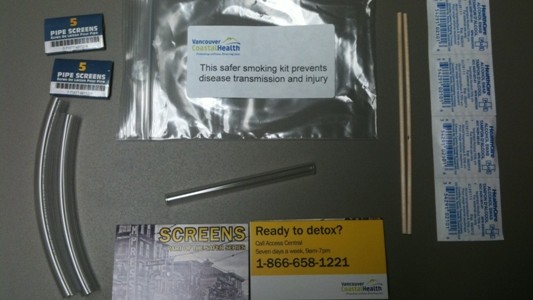Safer Smoking pilot results indicate positive health benefits for clients
The Safer Smoking Pilot is an example of one of our innovative and successful harm reduction initiatives. The Evaluation Report: Safer Smoking Pilot Project looks at whether providing free safer crack cocaine smoking supplies and related education reduces the health risks associated with using makeshift supplies and sharing supplies and whether this engages people to access health services and addiction treatment.
Overall, the pilot indicates that demand for the supplies was high and that engagement with users was positive. The safer smoking supplies the pilot provided reduced the number of injuries users experienced and clients shared their supplies less, which is important to reduce the potential risk of disease transmission.
Read the full evaluation report.
Crack smoking is associated with health issues, including an increased risk of infection with HIV, Hepatitis B and C, pneumonia, tuberculosis, and sexually transmitted infections. Users are at risk of inhaling steel wool and glass shards from incorrect equipment or usage, and at risk of cuts, burns and lung damage from using non-recommended materials.
Led by Harm Reduction Coordinator Sara Young, the pilot began in December 2011 and saw DAMS (Drug and Alcohol Meeting Support for Women), Portland Hotel Society, VANDU (Vancouver Area Network of Drug Users), and Lookout, all on the downtown eastside (DTES), distribute Safer Smoking kits containing supplies needed to reduce the harms associated with crack smoking. Also as a part of the project VANDU was contracted to provide education and support to users as part of the pilot.

